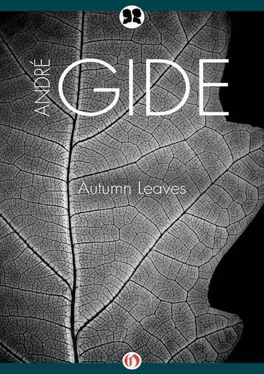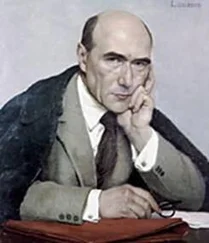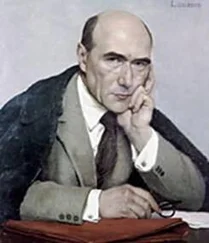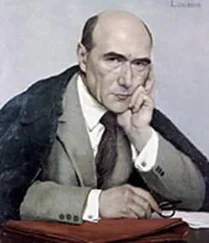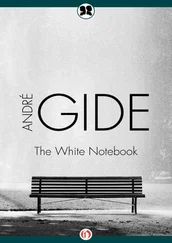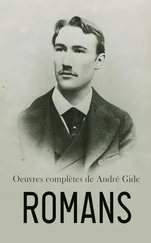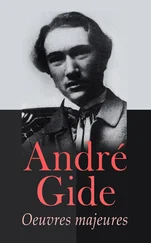It is true: it is around approximately that literature spreads out, in approximately that we all flounder. I was all too cognizant of it in his presence, and his graciousness often did not keep me from feeling embarrassed. Out of great respect for others, as well as through indifference, he tolerated religious sentiments, but only in others, refusing acceptance, needless to say, of any credo whatever. He held in particular aversion Protestantism, which divests the Christian service of everything attractive that Catholicism adds to its appearance, everything politic in its regulations, and practical in its relationships; with the result, too, that he took sides with the Jesuits against Pascal. Moreover, he evinced great scorn for pious vocabulary, as also for all vague terms: those promissory notes with no cover were discredited in his mind. In this regard, this memory, an example of the pleasing verve that I just mentioned:
Some illness or other kept me in bed several days with a fever. He came to my bedside; we talked a long time. What did we talk about? The Christian virtues, I believe, and, as I was rising to their defense, the word abnegation having escaped me, there was Paul jumping up, leaping from his seat, rushing toward the hall door in an assumed frenzy:
“Ice! Bring some ice, quick!.. The invalid is raving! He ABNEGATES!”
Full of deference for others; I did not say reverence. Deference is a first and convenient step along the road of veneration which, itself, implies respect, and Valéry knew how much respect restrains us. “The white man possesses a characteristic which has caused him to advance: disrespect,” writes Henri Michaux disrespectfully. Valéry, whose mind wished to “advance,” did not allow himself to be stopped by any form of sloth. He said jokingly (did he write it?): “Odd how many people lose their lives in accidents because they won’t let go of their umbrellas!” To get rid of every obstacle was his constant preoccupation, and a more liberated manner of thinking than his can not be imagined.
One must not reproach me, as has often been done in the case of Dostoyefsky, Goethe or Montaigne, of drawing on Valéry. Nothing more different than our two natures, more opposed than the tendencies of our two minds: mine “naturally inclined to veneration,” as Goethe said of his, while Valéry’s endeavored to be impious, showed itself blunt in respect to every belief admitted and uncontrolled, resolutely sceptic (at the same time doubter and searcher), not worrying about approval, approbation, sympathy, and seemingly freed of all human weaknesses, vain curiosity, casual preoccupations, lagging and shilly-shallying. To everything that might have distracted him from his quest, he said “No.” While, if I lost faith, in his train and like him, it was above all in myself. He seemed scarcely conscious of his ascendancy; my friendship underwent it, not without refractoriness sometimes, but the little resistance that I tried to put up, beat a hasty retreat, was routed. One thing that appeared to me, that I never doubted, was that he was always right. I suffered from his scorn, from some of it at least, but acknowledged its justification and his right to scorn, a right acquired by force of arms. His candid iconoclastic hammer spared nothing. And at that time, I didn’t know how to respond ironically to his quips, as I did a short time before the war, at the committee meeting on the radio where I had the great pleasure of having him for my neighbor at the green table; when leaning toward me (in regard to some utterance or other; the name of Homer had just been pronounced), he murmured:
“Do you know anything more boring than the Iliad?”
“Yes, the Chanson de Roland,” I exclaimed. (Had I been more skillful, I would have answered: La Jeune Parque.)
Not that I took him any less seriously in those latter days (I should be tempted to say: to the contrary), but I myself had gained more assurance. In the early days to which my memories go back, I usually came out of my conversations with Paul Valéry, mind and heart upset. “He breaks your spirit with a word, and I see myself like a defective vase that the potter throws into the discard,” Madame Teste wrote of her husband. Yes, that’s just what I felt. She added: “He is hard as an angel,” and again: “His existence seems to weaken all the others.” My admiration for him had to be very lively not to permit my friendship to suffer too much from it. Nothing that I lived for seemed to have any value in his eyes, and I had doubts as to his having any consideration whatever for anything I had written or wished to write. To see in that any lack on his part would have seemed presumption on mine. But he knew how to show his affection in a manner, very discreet and almost tender, that went to my heart more surely than effusions. His confidence in my taste as a critic, when he called me into consultation for some poem he had just thought out … nothing could flatter or touch me more, make me understand better that he at least took into account my judgment. To be sure, confidences revolted him and, considering every confession as unhealthy exhibitionism, he had no liking at all for what pleased me and what I thought I should write; but he thought I knew how to write, and that esteem was enough for me. 1
I was greatly surprised, one day, by his unexpected praise of one of my short articles to which I confess I attached little importance: A Dialogue with a German , written a short time after the other war.
“But that is only a report,” I protested.
“Never mind,” he said. “It is a perfect sketch.”
I verily believe it is the only praise he ever addressed to me. May his portrait that I am now trying to sketch be one that would have pleased him.
However admirable the greater part of Valéry’s poems appear to us, I still doubt that I prefer them to his prose; a number of his pages will remain, I believe, among the most perfect that have been written in any language. Let us add at once that I know few examples of French writers, if I can even find one (in Germany, one could mention Goethe), who have excelled equally in the two classes. And it is certainly from his prose that he has inclined the poetry of certain poets in his direction, invited a number of apprentices to write like him. This blow with the rod deserved to be given, on its encounter with excesses of license; but it is on another plane, more secret, that the extraordinary benefit of his influence is being exercised. That asper contemptordeum appears to me before everything and especially as a liberating master. No one has done more than he, not even Voltaire, to emancipate us and wean us away from faiths, cults and beliefs. At the very time that a wounded France seems ready to look for consolation, refuge and salvation in devotion (as she did at the end of the reign of Louis XIV, after the reverses of our armies), the virile teaching of Valéry takes on a particular importance; so also the example of his resistance in regard to the worst acceptances. Obstinately he said “NO” and remained a living witness to the insubordination of the mind.
“How does it happen,” he said to me, “that men take their rest so quickly? Why are they content with so little?”

1“I ascribe all that I think of art to the idea of exercise.”
1Cul-de-sac Royer-Collard, at the foot of rue Gay-Lussac.
1Incidentally he comes back to it again in 1934, in his essay: Fluctuations on Liberty, in which we read: “I can not even conceive of that equality of figures used in geometry.”
1“I don’t care for, nor have I any need of emotions,” he wrote in regard to Stendhal, “I ask only that he teach me his method.”
Читать дальше
